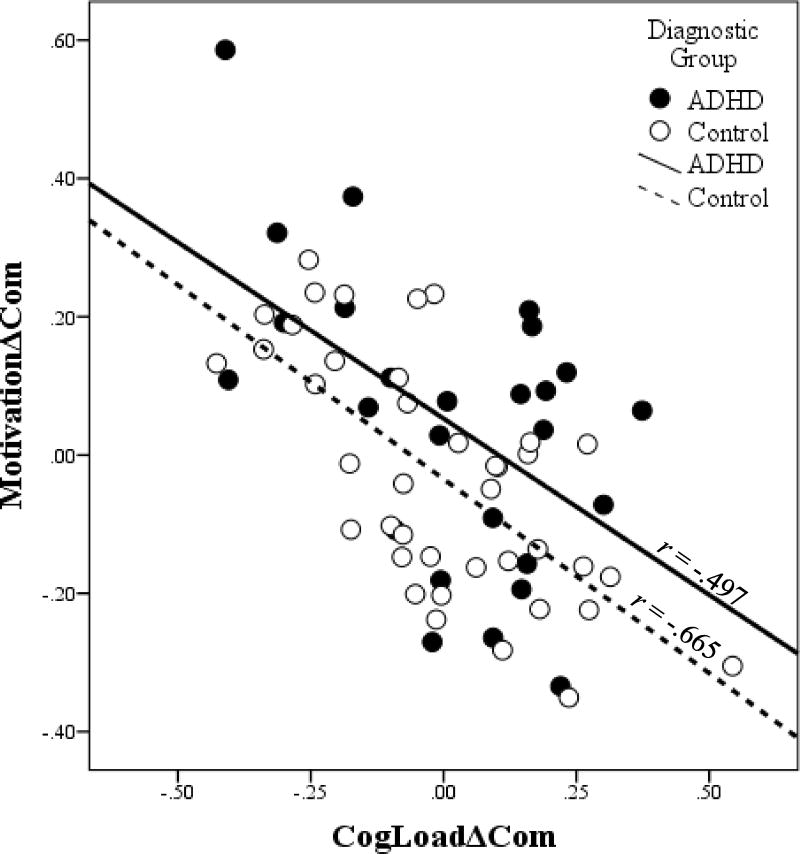Figure 1.
The partial correlation between the effect of cognitive load (CogLoadΔCom) and motivational contingencies (MotivationΔCom) on commission error rate during the Go/No-Go tasks controlling for intellectual reasoning ability (WISC-IV general ability index (GAI)) within the attention-deficit/hyperactivity disorder (ADHD) and typically developing control groups (Control). The unstandardized residuals for each variable regressed on GAI are plotted here. Children who showed a greater effect of cognitive load on response control (CogLoadΔCom) also showed less improvement in response control with motivational contingencies (MotivationΔCom) within the ADHD group (r(23) = -.497, p = .011), and the Control group (r(37) = -.665, p <.001).

